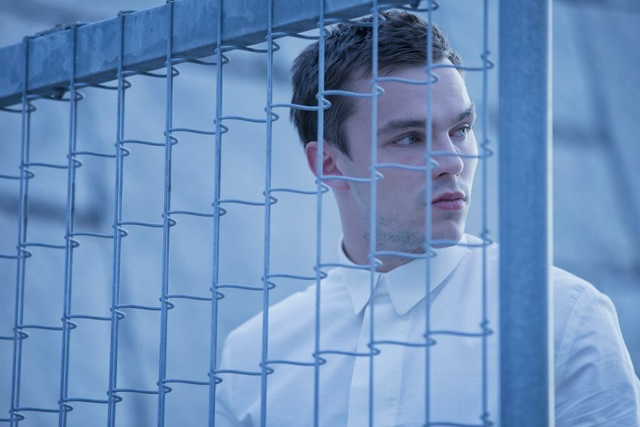Equals

Equals can be summed up as a Romeo and Juliet-like love story set in a dystopian – or actually utopian, as director Drake Doremus prefers to say – futuristic world.
There’s very little originality in terms of plot and sci-fi elements; everything seen onscreen derives from classic movies such as Fahrenheit 451, Gattaca and Equilibrium.
In the aftermath of a nuclear war, the Collective decide that human emotions should be inhibited through a vaccine administered shortly after birth. Nonetheless, there are a few who develop feelings approaching adulthood, and who are consequently considered to be a threat to society. These individuals cease to be equals and become SOS (Switched-on Syndrome) positive. This is what happens to Silas (Nicholas Hoult) and Nina (Kristen Stewart), who fall in love and plan to elope to the Peninsula, a neighbouring area where technology has been abandoned in favour of a primitive existence.
The popular faces of Hoult and Stewart do not do Equals any good. In fact, despite their passable acting, these two slap an inevitable “young adult story” label on the movie. It’s the providential screen time of Guy Pearce that confers it a higher status.
There are also some very good elements in this film worth mentioning: the embracing and enchanting score, written by Sascha Ring and Dustin O’Halloran, is the fil rouge that organically ties all of the scenes together. John Guleserian’s overexposed and borderline-blurry cinematography is its visual counterpart. Aesthetically, Equals is an impressive achievement; it’s just a shame that Doremus did not manage to bring any substance to the story.
Filippo L’Astorina, the Editor
Equals does not have a UK release date yet.
Read more of our reviews and interviews from the festival here.
For further information about Venice Film Festival 2015 visit here.


























Facebook
Twitter
Instagram
YouTube
RSS